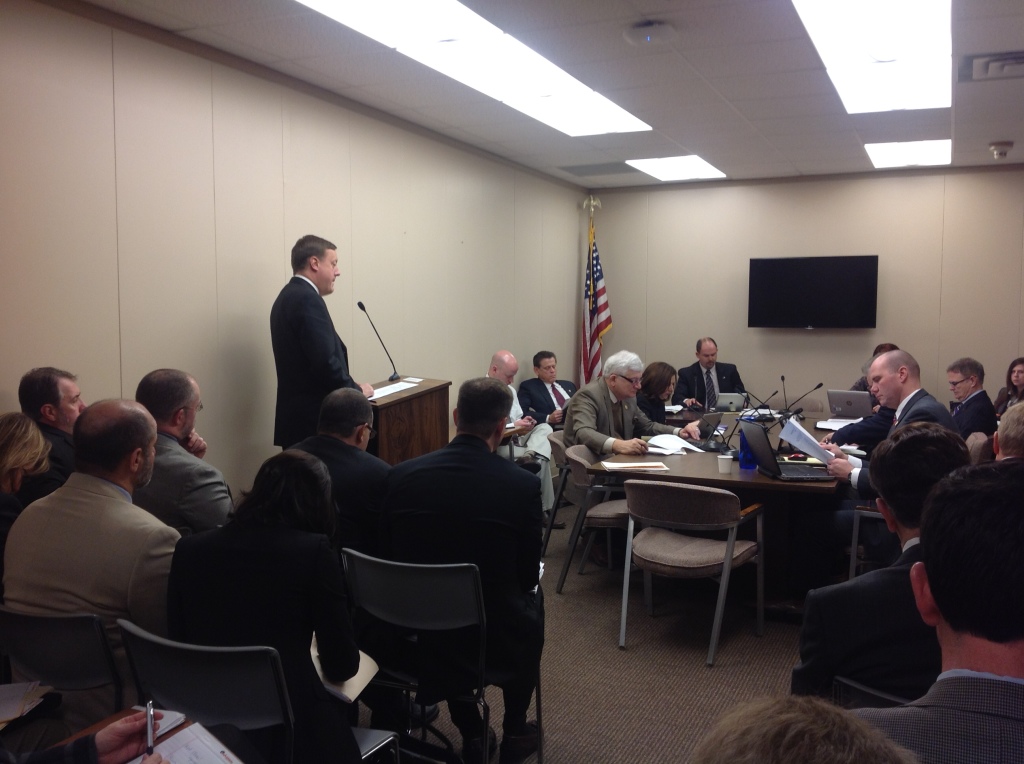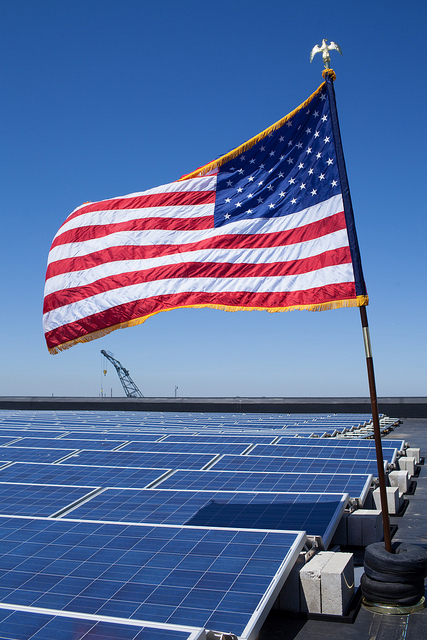Inside the coming showdown over rooftop solar in Indiana
The Green Tea Coalition is contemplating action in the state
A revolutionary alliance of conservative and liberal renewables advocates is watching events in Indiana, where they say Republican-sponsored legislation may threaten solar growth.
The Green Tea Coalition has changed the politics of renewable energy in other states. Its leaders are now studying Indiana’s HB 1320, which State Representative and bill sponsor Eric Koch (R) calls a pro-solar bill. Solar advocates say it is actually designed to kill the industry in Indiana.
“What is not getting attention are the provisions of the bill designed to promote and grow distributed generation in Indiana,” Koch told Utility Dive. “It authorizes leasing of distributed systems, which is not permitted right now.”
The Indiana Energy Association, which represents the state’s 14 utilities, supports the bill, according to spokesperson Dave Arland. In addition to establishing solar leasing, it has “important consumer protections, including a disclosure requirement about the details of the lease. And it gives the Indiana Attorney General the authority to deal with bad actors.”
“It is a well-crafted technical bill that is difficult for the solar industry and elected officials and consumers to fully understand,” said Midwest spokesperson for the Alliance for Solar Choice (TASC) Amy Heart. “This bill adds fees and gets rid of any economic viability of customer-owned and rooftop-sited solar.”

Inside HB 1320
The bill has three particularly troublesome provisions that would impact owners of distributed generation (DG) like rooftop solar, according to Citizens Action Coalition Executive Director Kerwin Olson.
- It will change the remuneration for net metered solar from the retail rate to the significantly lower avoided cost of acquiring electricity from another source.
- It allows Indiana utilities, if the Indiana Utility Regulatory Commission approves, to add, for the first time, a fixed monthly charge to DG system owners’ bills.
- It allows utilities, with regulatory approval, to set their own rules for DG interconnection and may allow them, for the first time, to establish interconnection fees.
It also may, Olson added, allow utilities to create a fixed monthly charge for all Indiana utility customers for the first time.
“That section may fundamentally change the way we regulate utilities,” Olson said, “because it may mandate the commission to allow the fixed charge on a cost causation basis alone, ignoring the long held regulatory principle that utility rates must be just and reasonable in a broader, more societal context.”
Finally, Olson charged, the consumer protections for solar leasing customers described by Arland and other stipulations of the bill “burdensome and unnecessary obstacles,” as they are known in regulatory proceedings.
“Under the bill, the commission will make a determination of what is just and reasonable and in the public interest,” Representative Koch said.
HB 1320 would allow Indiana’s solar industry to expand through solar leasing, "but along with that growth comes the issue of cost shifting," Koch said. "The fixed charge, which seems to get most of the attention from the critics, is designed to make sure the costs of the grid are fairly apportioned to those who use it.”
“The bill provides a pricing structure that is fair to the customer who installs solar and is fair to the customer who does not,” explained Indiana Energy Association President Mark Maassel. It addresses potential problems with net metering that have been encountered in other states before they become problems for Indiana, he said.
“And, because we are opening up the possibility of leasing, which is something that in other states has led to a lot of solar being installed, we are creating a market for Indiana that can support long term growth because it makes sense.”
TASC does not agree. By lowering net metering remuneration for DG owners, possibly adding a monthly fixed charge to their bills, and instituting interconnection fees, the very solar leasing program the bill authorizes becomes uneconomic, Heart said. “But Indiana legislators may not see past its advocates’ claim that it is pro-solar.”

The politics
“Indiana is as red as you can get,” Olson said. “Democrats are completely irrelevant.” The Senate is 40-to-10 in favor of Republicans, and the House is 71-to-29, Republican. Olson's hope is to create an alliance between the Democratic minority, and free-market minded Republicans to oppose the bill.
“This is an attack on solar and on freedom of choice going on nationwide,” said Atlanta Tea Party Patriots Co-Chair Debbie Dooley. She has been talking to Olson and others about engaging in Indiana.
Dooley, one of 22 founders of the national Tea Party movement, sits on the Board of Directors of the Tea Party Patriots and is the leader of the Green Tea Coalition. An alliance of environmentalists and free-market advocates, the coalition was initially formed in Georgia to protect access to solar. More recently, it has been active on behalf of solar in Florida.
“I am talking to some people about going to Indiana and calling the utilities out for trying to stop competition,” Dooley said. “Choice is free market and a lot of Republicans support the free market except when it comes to government-created utility monopolies that make a guaranteed profit off of building new power plants.”
The American Legislative Exchange Council (ALEC) and Koch brothers-funded groups are behind utility-led efforts to block solar and “stop competition and protect their profit margins,” Dooley believes.
“The reason I like solar is the average person can’t go out and build a new power plant but the average person can put solar panels on their roof,” Dooley said. She is not protecting solar as much as she is protecting the right to choose solar. “At some point, we are going to have to look at the structure of the monopoly utilities,” Dooley said.
Dooley's message for Republicans
“I have a message for Republicans," Dooley told Utility Dive. "If you are protecting monopolies, you are violating free market principles. In Indiana, elected officials who are trying to take away incentives for solar apparently don’t mind giving incentives to big corporations. They just don’t want individuals to have them.”
There is an energy revolution going on, she said. “For years, conservatives have been brainwashed into believing solar is bad. In the states where I am active, we don’t hesitate to call out those politicians and now a different message is being delivered. I look forward to coming to Indiana and delivering this message.”
Indiana politicians may already be getting the message. “This bill is a long way from its final version and there will be many amendments,” Koch said. “I am still taking stakeholder input and working with the commission. I have a lot of contact with various groups making their feelings known on all sides of the issue.”





